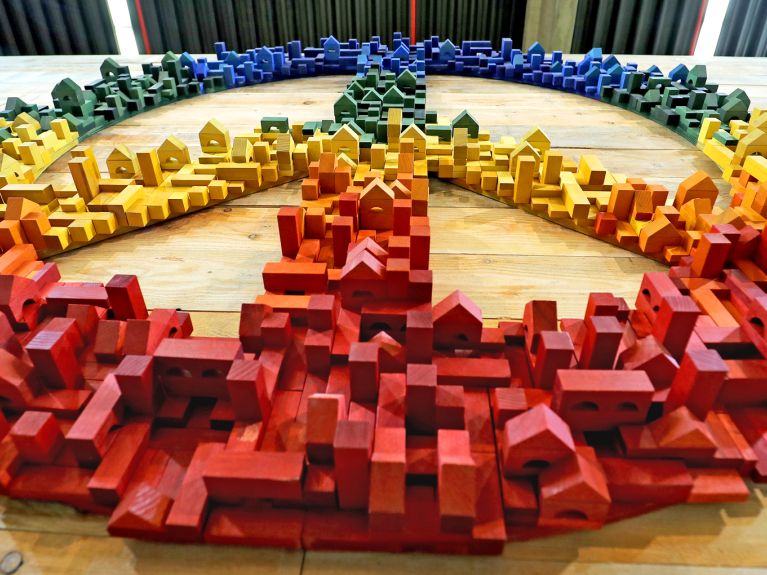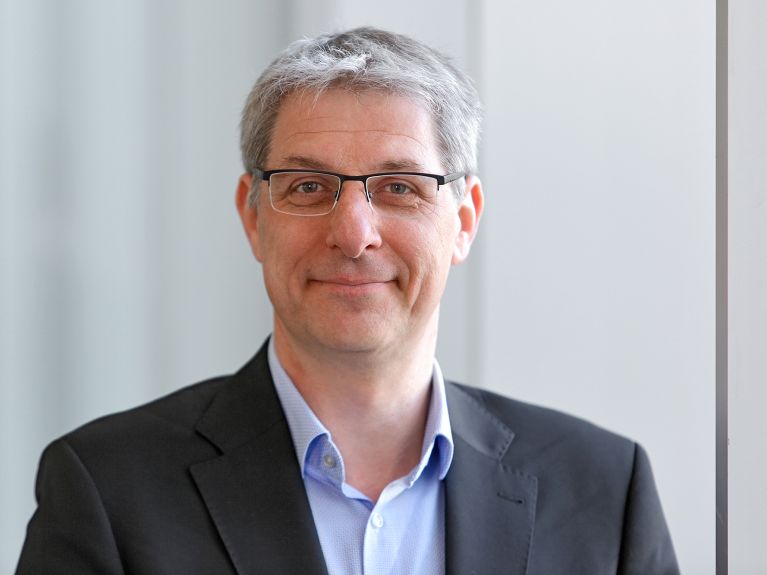Researching for peace
What can science do for peace? An expert talks about current conflicts and new study opportunities.

Deutschland. "Politicians are looking for answers" – Ulrich Schneckener, Chair of the Executive Board of the German Foundation for Peace Research, explains the kind of impact his science can have.
Professor Schneckener, is peace research particularly in demand at present?
Yes, you could say that. The 'war against terror', which was declared in 2001 as a response to the September 11 terrorist attacks, has proved to be a false paradigm of security policy. It has led to more violence, war and in many cases the loss of national and international order. Now policy-makers and civil society are increasingly looking to peace and conflict research for alternatives.
Peace must, above all, be fought for and won by the society of a country.
What topics are at the focus of attention?
The idea that post-war societies can be transformed relatively easily into market-based democracies by international intervention is an illusion. Peace must, above all, be fought for and won by the society of a country. German peace research, for example, has made many contributions to peace-building and civil conflict transformation – a concept that lies between conflict management and conflict resolution.

Can the transition be made from science to political action?
A lot has been happening recently particularly in the fields related to conflict transformation: prevention and mediation to the strengthening of civil societies. Practice-oriented institutions have emerged, the Center for International Peace Operations (ZIF), for example. As a result of the 'Review 2014 – Join the Debate' process, Germany's Foreign Office has created the Directorate-General for Humanitarian Assistance, Crisis Prevention Stabilisation and Post-Conflict Reconstruction – all terms developed in peace and conflict research. Policy-makers are also looking for answers on how to maintain peace within society. After all, regional wars have already been impacting on our society for a long time. 'Fear of terror' and concerns about integrating refugees also have a polarizing effect and challenge social cohesion in Germany.
Dieses YouTube-Video kann in einem neuen Tab abgespielt werden
YouTube öffnenThird party content
We use YouTube to embed content that may collect data about your activity. Please review the details and accept the service to see this content.
Open consent formWhere can peace research be studied in Germany?
Several (in some cases English-language) master's degree programmes, professorships and institutes in peace and conflict research have emerged in recent years. Much more than ten years ago, German universities are training experts who can use their knowledge in practical peace work, e.g. in international organizations, government institutions or non-governmental organizations. Non-university research institutions, such as the Peace Research Institute Frankfurt (PRIF), the Hamburg Institute for Peace Research and Security Policy (IFSH) or the Bonn International Center for Conversion (BICC), are a distinctive feature in Germany. There is a great amount of scientific potential, also with a view to politics and society.
Interview: Johannes Göbel

